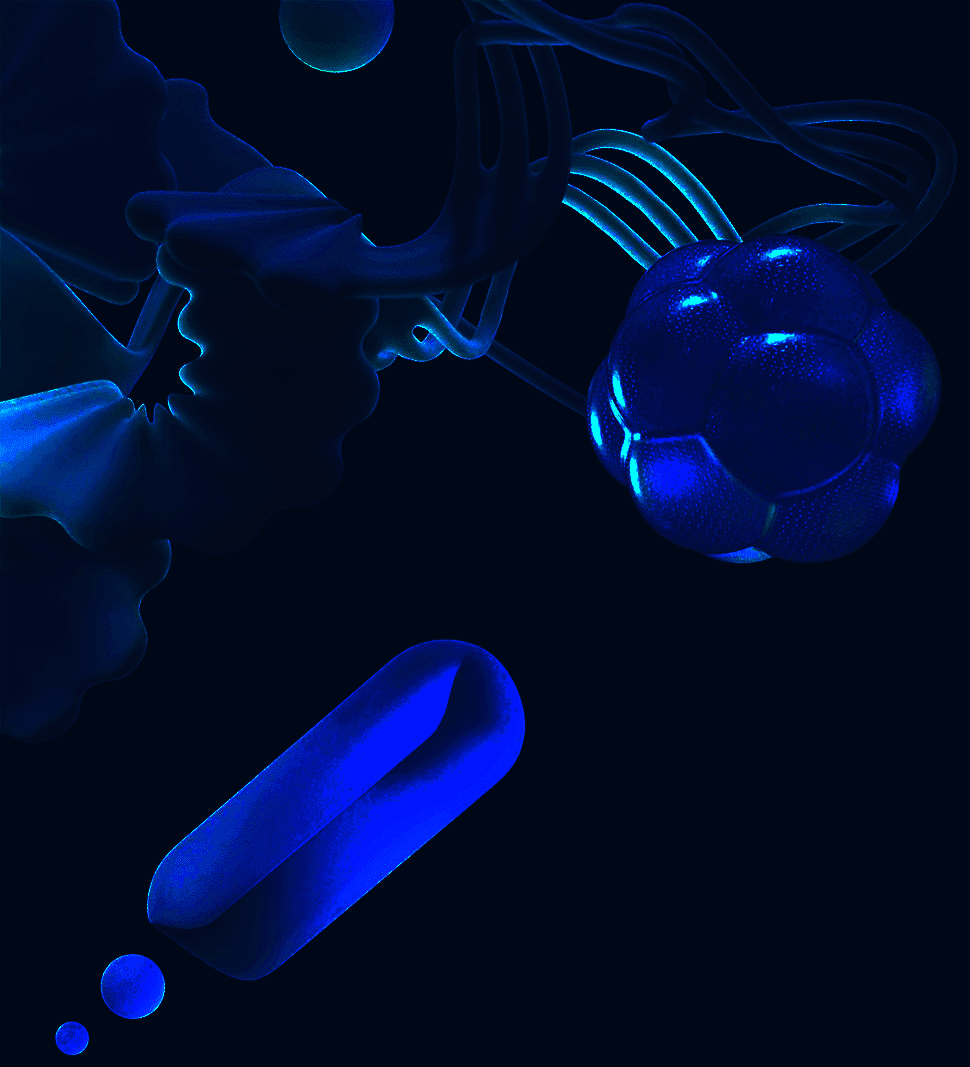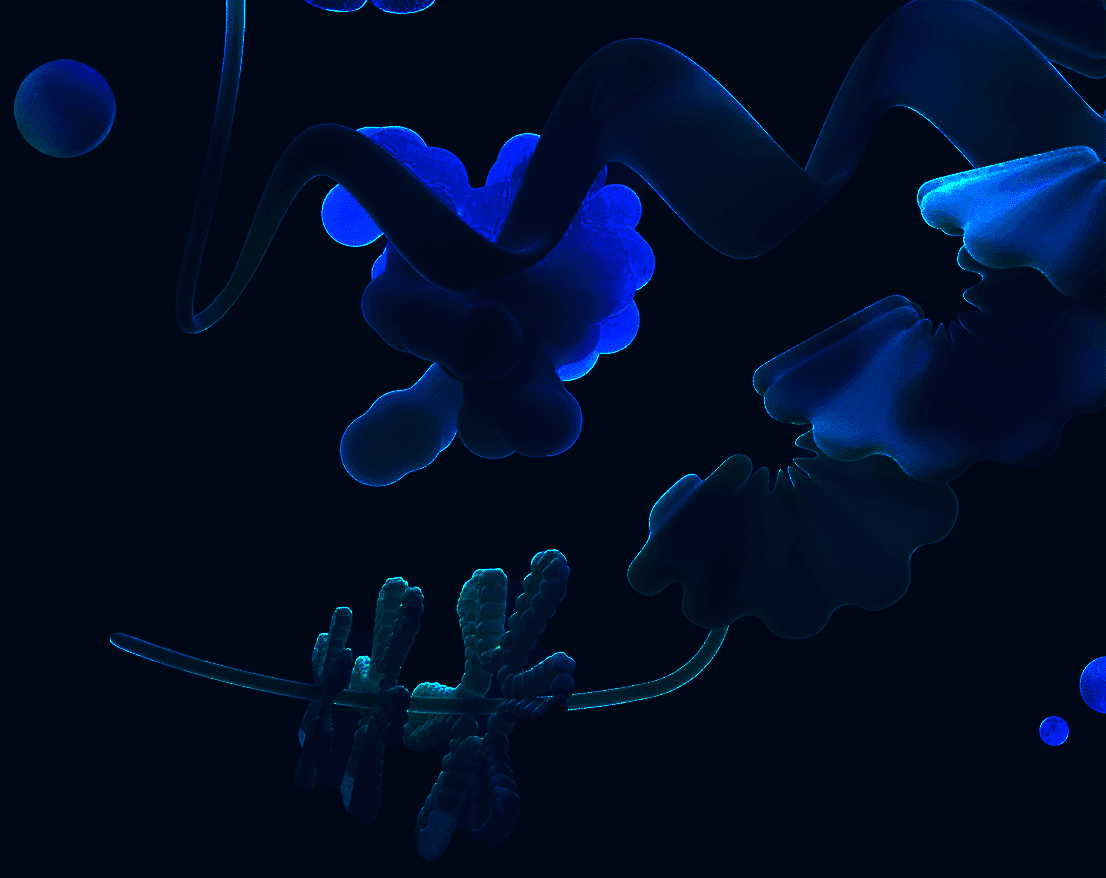

Trade the future of science
Your gateway to innovation in biotech

IPTS MARKET CAP
$16,026,590

24H TRADING VOLUME
$18,520

UNIQUE IPTS
46

UNIQUE WALLETS
6,305

ALL-TIME TRADING VOLUME
$61,425,414

TOTAL DEX TRANSACTIONS
297,909
Scientific Domain
Explore scientific frontiers in longevity, brain health, AI, and more.
Discover All Tokens
Explore tokenized science on Molecule.xyz to access, fund, and participate in cutting-edge research.
Chain
Select
# | Tokens | Price | 24h Change | FDV | 24h Trad. Volume | Chain | Liquidity |
|---|---|---|---|---|---|---|---|
| 1 | $3.18 | 1.91% | $4,379,482 | $3,269.25 | $281,472 | ||
| 2 | $2.17 | 0.65% | $2,173,955 | $132.96 |  Ethereum Ethereum | $124,530 | |
| 3 | HO | $0.194 | 1.24% | $1,935,902 | $770.15 | $542,177 | |
| 4 | $0.252 | 0% | $1,261,676 | $0.00 |  Ethereum Ethereum | $30,024 | |
| 5 | $0.356 | 0.94% | $844,018 | $3,662.97 |  Ethereum Ethereum | $71,353 | |
| 6 | D1 | $0.0274 | 2.31% | $722,107 | $1,358.50 | $200,022 | |
| 7 | $0.0006626 | 5.68% | $662,576 | $1,100.73 |  Solana Solana | $67,342 | |
| 8 | $0.0602 | 2.43% | $601,861 | $69.36 |  Ethereum Ethereum | $28,199 | |
| 9 | $0.0003941 | 0.48% | $393,927 | $4,161.94 |  Solana Solana | $239,674 | |
| 10 | $0.0314 | 0.57% | $314,083 | $48.94 | $160,057 | ||
| 11 | $0.0002502 | 2.31% | $250,142 | $247.61 |  Solana Solana | $164,413 | |
| 12 | RE | $0.0249 | 0.17% | $248,625 | $24.26 | $141,697 | |
| 13 | ED | $0.119 | 0.43% | $238,417 | $6.41 | $47,032 | |
| 14 | FO | $0.0238 | 1.71% | $237,520 | $122.73 | $115,313 | |
| 15 | $0.187 | 1.94% | $205,903 | $286.81 | $29,692 | ||
| 16 | VI | $0.0609 | 1.70% | $194,251 | $40.37 | $71,213 | |
| 17 | $0.189 | 0.06% | $189,262 | $90.67 | $13,942 | ||
| 18 | $0.164 | 4.83% | $164,229 | $3.24 | $14,010 | ||
| 19 | $0.0001558 | 0.81% | $155,795 | $54.51 | $13,040 | ||
| 20 | $0.0001350 | 2.86% | $134,953 | $1,955.94 |  Solana Solana | $24,718 | |
| 21 | $0.0001143 | 6.21% | $114,190 | $336.31 |  Solana Solana | $22,390 | |
| 22 | $0.0001673 | 2.30% | $101,196 | $237.93 | $34,407 | ||
| 23 | $0.0950 | 1.70% | $95,019 | $79.63 | $10,431 | ||
| 24 | $0.0003497 | 2.54% | $85,743 | $19.27 | $83,246 | ||
| 25 | $0.0499 | 0% | $49,850 | $0.00 | $18,932 | ||
| 26 | BI | $0.00735 | 0.25% | $43,788 | $128.06 | $26,177 | |
| 27 | $0.00003245 | 0% | $24,254 | $0.00 |  Solana Solana | $14,436 | |
| 28 | $0.00002331 | 0% | $23,302 | $0.00 |  Solana Solana | $10,662 | |
| 29 | $344.60 | 0% | $18,953 | $0.00 |  Ethereum Ethereum | $6,031 | |
| 30 | $0.00001562 | 0.51% | $15,618 | $28.36 |  Solana Solana | $8,387 | |
| 31 | $0.00001555 | 0% | $15,541 | $13.68 |  Solana Solana | $8,426 | |
| 32 | $0.00001506 | 1.53% | $15,061 | $144.84 |  Solana Solana | $8,354 | |
| 33 | $0.00001345 | 1.98% | $13,444 | $8.04 |  Solana Solana | $7,746 | |
| 34 | $0.00001774 | 0% | $11,968 | $0.00 |  Solana Solana | $10,291 | |
| 35 | $0.00001102 | 6.02% | $10,682 | $86.77 |  Solana Solana | $6,922 | |
| 36 | $0.00001004 | 2.30% | $9,737 | $3.84 |  Solana Solana | $6,684 | |
| 37 | $0.000009656 | 0.23% | $9,373 | $1.57 |  Solana Solana | $6,636 | |
| 38 | $0.000008529 | 0% | $8,520 | $0.00 |  Solana Solana | $6,657 | |
| 39 | $0.000008210 | 0% | $7,954 | $0.00 |  Solana Solana | $6,041 | |
| 40 | $0.000007440 | 0% | $7,440 | $0.00 |  Solana Solana | $5,596 | |
| 41 | $0.000007309 | 0% | $7,306 | $0.00 |  Solana Solana | $5,662 | |
| 42 | $0.000006990 | 0% | $6,751 | $0.00 |  Solana Solana | $5,882 | |
| 43 | $0.000006476 | 0% | $6,474 | $24.62 |  Solana Solana | $5,380 | |
| 44 | $0.000005843 | 0% | $5,650 | $0.00 |  Solana Solana | $5,050 | |
| 45 | $0.000005307 | 0% | $5,128 | $0.00 |  Solana Solana | $5,057 | |
| 46 | $0.000004966 | 0% | $4,964 | $0.00 |  Solana Solana | $5,039 |

Don't miss a thing.
Stay tuned to new token launches and project updates.

